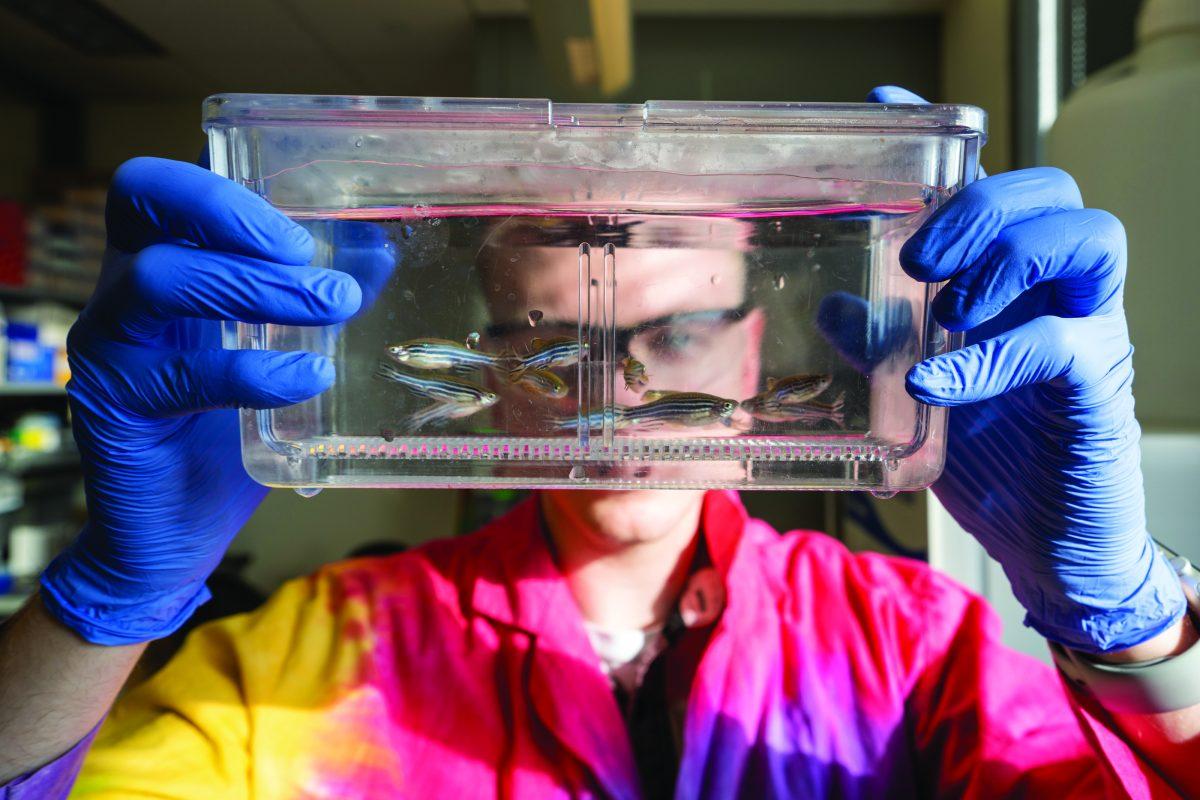Interested in learning about a pet’s DNA? Want to know how genetics plays a role in brewing? Curious how genetically-modified foods affect the world’s food supply? The Genetics and Genomics Academy offers courses on these subjects to undergraduate students, regardless of their course of study.
The academy was created to expand knowledge in genetics and genomics in an accessible way for students. The academy offers a range of courses, several of which are just one credit hour.
Melissa Ramirez, director of GGA undergraduate programs, said one way the academy hoped to increase genetic scholarship was through eliminating prerequisites for the courses, allowing students to take the classes out of general interest without the concern of creating an unmanageable schedule.
“One thing we really want to stress is that our courses don’t have prerequisites,” Ramirez said. “So we are expecting that students have no background except their high school background in genetics.”
GGA 295 (064): My Pet’s DNA allows students to learn more about their pets. Students swab their pet’s DNA and send the sample to a company that breaks down genetic information for students. Students then learn more about the technology behind the process and what the results signify.
GGA 295 (062): Biotechnology and Bioengineered Foods investigates bioengineered foods and how they affect community food supply. GGA 295 (065): Taming Selfish DNA discusses the ethics behind gene-drive technology that could be involved in targeting invasive pests.
The program also offers a three-credit course, USDEI 295, on race, genes and society, which fulfills the U.S. Diversity, Equity and Inclusion credit. In fall 2024, the academy will add a course on the genetics behind brewing beer and food products.
Fred Gould, executive director of the academy, said the academy was created to be an interdisciplinary center that could bring the campus together. Ultimately, the academy is centered around the goal of encouraging students to look at the broader impact of genetics in the world and within their own field of study.
“We want students to not just focus on the genetics but focus on understanding them in the context of society,” Ramirez said. “So yes, I want to talk about how genetic engineering is going to be used to manage the load of our food supply, but what does that mean to be able to feed our community and our world? So we want to make those issues local for students.”
Since the 1950s, NC State has had a strong presence in the field of genetics, which is the study of individual genes and inheritance of traits. Genomics is the study of the entire genome and how different genes interact with each other and the environment.
Gould said companies like 23andMe, which analyze DNA to look at a person’s health and ancestry, are examples of the study of genomics in the world today. Understanding the implications behind processes in genetics and genomics is important to the academy’s initiative.
The academy also offers a unique, one-year graduate program called the Genetics and Genomics Scholars. The program offers 15 fellowships and educates students on how knowledge of genetics and genomics can enhance their own field of work.
The graduate program includes students in several disciplines and Ph.D. programs, ranging from physics to biochemistry. The program offers students a survey course of genetics and genomics and allows them to rotate through research labs over a course of five to six weeks.
“And when they’re finished, then they go out to their own departments where they’re going to get their Ph.D.s, but they know some other students,” Gould said. “So you may be in physics, but now you know somebody who’s working in plant biology, and ‘Oh, is there some connection here?’ So you can connect your advisor’s labs together, maybe, so it’s been a big exploration and it’s been very successful so far.”
The academy welcomes new undergraduate course ideas in the field of genetics and genomics from both students and instructors. To suggest a course idea as a student, email Melissa Ramirez. For instructors interested in teaching an undergraduate course, fill out this form.













